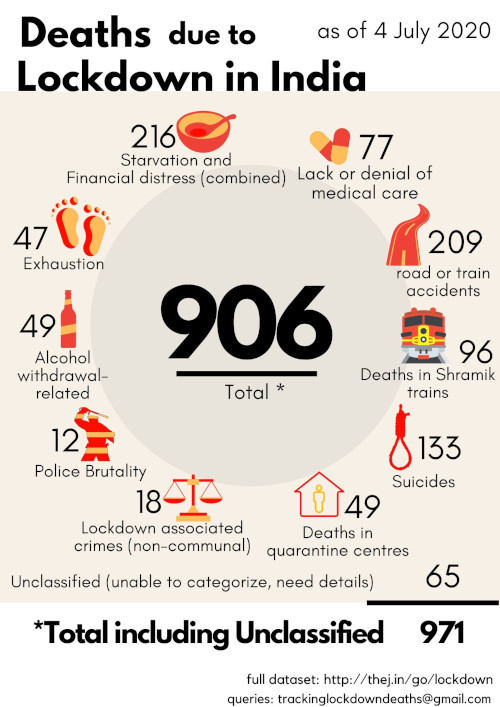Lawrence Liang’s Speech at JNU Alternative Classroom – Annotated

Lawrence Liang legal researcher, lawyer and co founder of the Alternative Law Forum based in Bangalore. He is known for his legal campaigns on issues of public concern. Picture of Lawrence is by Joi Ito is distributed under CC BY 2.0.
He recently lectured at JNU Alternative Classroom. It was a brilliant lecture with various legal references. As I listened I made notes and today I thought I will publish it for others. Please comment if you find something important that I missed.
- 06:00 – Socrates: The “Gadfly” of Athens 1
- 07:15 – The Great Trial of Mahatma Gandhi.2
- 07:20 – Section 124A of IPC
- 08:27 – Violence in Patiala House – Republic versus nation
- 09:00 The expression “disaffection” includes disloyalty and all feelings of enmit3
- 10:00 – The protest and counter-protests raise basic concerns about what Jürgen Habermas called “constitutional patriotism”, different from “statist patriotism” (what Gandhi called “manufacturing affection for the state”).4
- 11:45 – Article 19 in The Constitution Of India 1949
- Life Insurance Corpn. Of India And … vs Prof. Manubhai D. Shah Etc. Etc on 22 July, 1992. 5 Universal Declaration of Human Rights (1948), referred to. Source.]
- 15:00 – JNU student leader held: Kanhaiya Kumar sent to 3-day custody
- 16:20 – During the emergency courts hadn’t responded to political crisis.6, 7
- 20:00 – Ramji Lal Modi vs The State Of U.P on 5 April, 1957 8
- 20:30 – Article 19(2) in The Constitution Of India 1949 has “public order” 9
- 20:59 – -The Superintendent, Central … vs Ram Manohar Lohia on 21 January, 1960, defines “reasonable restrictions” 10
- 21:52 – Constitutional validity of sedition was raised in 1962 in Kedar Nath Singh vs State Of Bihar on 20 January, 1962 11
- Shreya Singhal vs U.O.I on 24 March, 2015 judgement invalidating Section 66A talks about difference between debate, discussion and incitement 12
- 24:00 – Section 66A has chilling effect says court 13
- 24:23 – Indira Jaising Tweeted after 66A case Shreya, this could only have been done by a below 30s generation, congratulations for getting Section 66A struck down!
- 26:00 Tinker v. Des Moines Independent Community School District 14, where a 13 year old student challenged the school where she argued the school violated her Free Speech
- 27:00 Bijoe Emmanuel & Ors vs State Of Kerala & Ors on 11 August, 1986. Suspended from the school for not singing National Anthem. But supreme court sided on the right to remain silent. 15
- 29:00 – After 1992 Bombay riots case, Joseph Bain D’Souza And Another vs State Of Maharashtra And Others on 23 September, 1994. Was a regressive judgement. 16
- 32:00 – Quote by Václav Havel
Also you would have got this in your podcast catcher if you had subscribed to it. 👌
Footnotes
-
For if you kill me you will not easily find a successor to me, who, if I may use such a ludicrous figure of speech, am a sort of gadfly, given to the state by God; and the state is a great and noble steed who is tardy in his motions owing to his very size, and requires to be stirred into life. I am that gadfly which God has attached to the state, and all day long Jowett1892: 31and in all places am always fastening upon you, arousing and persuading and reproaching you. Source.
-
Affection cannot be manufactured or regulated by law. If one has no affection for a person or system, one should be free to give the fullest expression to his disaffection, so long as he does not contemplate, promote or incite to violence. Full Speech.
- 124A. Sedition. Whoever, by words, either spoken or written, or by signs, or by visible representation, or otherwise, brings or attempts to bring into hatred or contempt, or excites or attempts to excite disaffection towards, 102 the Government established by law in 103 India, shall be punished with 104 imprisonment for life, to which fine may be added, or with imprisonment which may extend to three years, to which fine may be added, or with fine.
Explanation 1. The expression “disaffection” includes disloyalty and all feelings of enmity.
Explanation 2. Comments expressing disapprobation of the measures of the Government with a view to obtain their alteration by lawful means, without exciting or attempting to excite hatred, contempt or disaffection, do not constitute an offence under this section.
Explanation 3. Comments expressing disapprobation of the administrative or other action of the Government without exciting or attempting to excite hatred, contempt or disaffection, do not constitute an offence under this section. ↩ - How to govern dissent Written by UPENDRA BAXI on February 27, 2016 ↩
- 7. Speech is God’s gift to mankind. Through Speech a human being conveys his thoughts, sentiments and feeling to others. Freedom of speech and expression is thus a natural right which a human being acquires on birth. It is, therefore, a basic human right. Thus freedom to air one’s views is the life line of any democratic institution and any attempt to stifle, suffocate or gag this right would sound a death-knell to democracy and would help usher in autocracy or dictatorship. Efforts by intolerant authorities to curb or suffocate this freedom have always been firmly repelled. More so when public authorities have betrayed autocratic tendencies. [605G, 608-B, 611E ↩
- Additional District Magistrate, … vs S. S. Shukla Etc. Etc on 28 April, 1976 ↩
- SC admits it ‘violated’ fundamental rights during Emergency ↩
- The expression “in the interests of” occurring in the amended Cl. (2) of Art. 19 had the effect of making the protection afforded by that clause very wide and a law not directly designed to maintain public order would well be within its protection if such activities as it penalised had a tendency to cause public disorder. Debi Soron v. The State of Bihar, A.I.R. (1954) Pat. 254, referred to. ↩
- (2) Nothing in sub clause (a) of clause ( 1 ) shall affect the operation of any existing law, or prevent the State from making any law, in so far as such law imposes reasonable restrictions on the exercise of the right conferred by the said sub clause in the interests of the sovereignty and integrity of India, the security of the State, friendly relations with foreign States, public order, decency or morality or in relation to contempt of court, defamation or incitement to an offence ↩
- The word “reasonable” has been defined by this Court in more than one decision. It has been held that in order to be reasonable, “restrictions must have reasonable relation to the object which the legislation seeks to achieve and must not go in excess of that object”. The restriction made “in the interests of public order” must also have reasonable relation to the object to be achieved, i.e., the public order. If the restriction has no proximate relationship to the achievement of public order, it cannot be said that the restriction is a reasonable restriction within the meaning of the said clause. Source ↩
- we have no hesitation in so construing the provisions of the sections impugned in these cases as to limit their application to acts involving intention or tendency to create disorder, or disturbance of law and order, or incitement to violence. source ↩
- . But even advocacy of violation, however reprehensible morally, is not a justification for denying free speech where the advocacy falls short of incitement and there is nothing to indicate that the advocacy would be immediately acted on. The wide difference between advocacy and incitement, between preparation and attempt, between assembling and conspiracy, must be borne in mind. In order to support a finding of clear and present danger it must be shown either that immediate serious violence was to be expected or was advocated, or that the past conduct furnished reason to believe that such advocacy was then contemplated.” (at page 1105, 1106) source ↩
- 90. These two Constitution Bench decisions bind us and would apply directly on Section 66A. We, therefore, hold that the Section is unconstitutional also on the ground that it takes within its sweep protected speech and speech that is innocent in nature and is liable therefore to be used in such a way as to have a chilling effect on free speech and would, therefore, have to be struck down on the ground of overbreadth.source ↩
- Tinker v. Des Moines Independent Community School District, 393 U.S. 503 (1969) was a decision by the United States Supreme Court that defined the constitutional rights of students in U.S. public schools. The Tinker test is still used by courts today to determine whether a school’s disciplinary actions violate students’ First Amendment rights. source ↩
- We may at once say that there is no provisions of law which obliges anyone to sing the National Anthem nor do we think that it is disrespectful to the National Anthem if a person who stands up respectfully when the National Anthem is sung does not join the singing. It is true Art. 51-A(a) of the Constitution enjoins a duty on every citizen of India “to abide by the Constitution and respect its ideals and institutions, the National Flag and the National Anthem.” Proper respect is shown to the National Anthem by standing up when the National Anthem is sung. It will not be right to say that disrespect is shown by not joining in the singing. source ↩
- The criticism is not against the Muslims as a whole but only against anti-social elements in the Muslim community. source ↩











